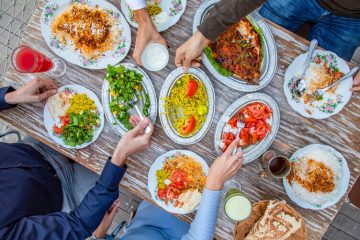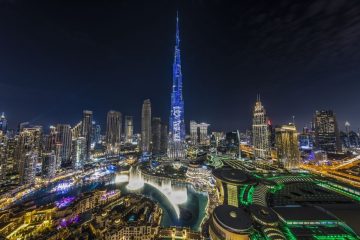Recently added our Student Destination of the Year to your bucket list? (If not, here’s why you should.) You might have some questions about visiting Dubai or how to plan a trip to Dubai—and luckily for you, we’re here to help. Whether you’re dreaming of a trip to Dubai for a winter getaway to warm up, hoping to visit for the World Expo, or just curious about whether or not Dubai is a good destination for your next vacay, we’ve got the answers you need.
1. Where is Dubai located and how do I get there?
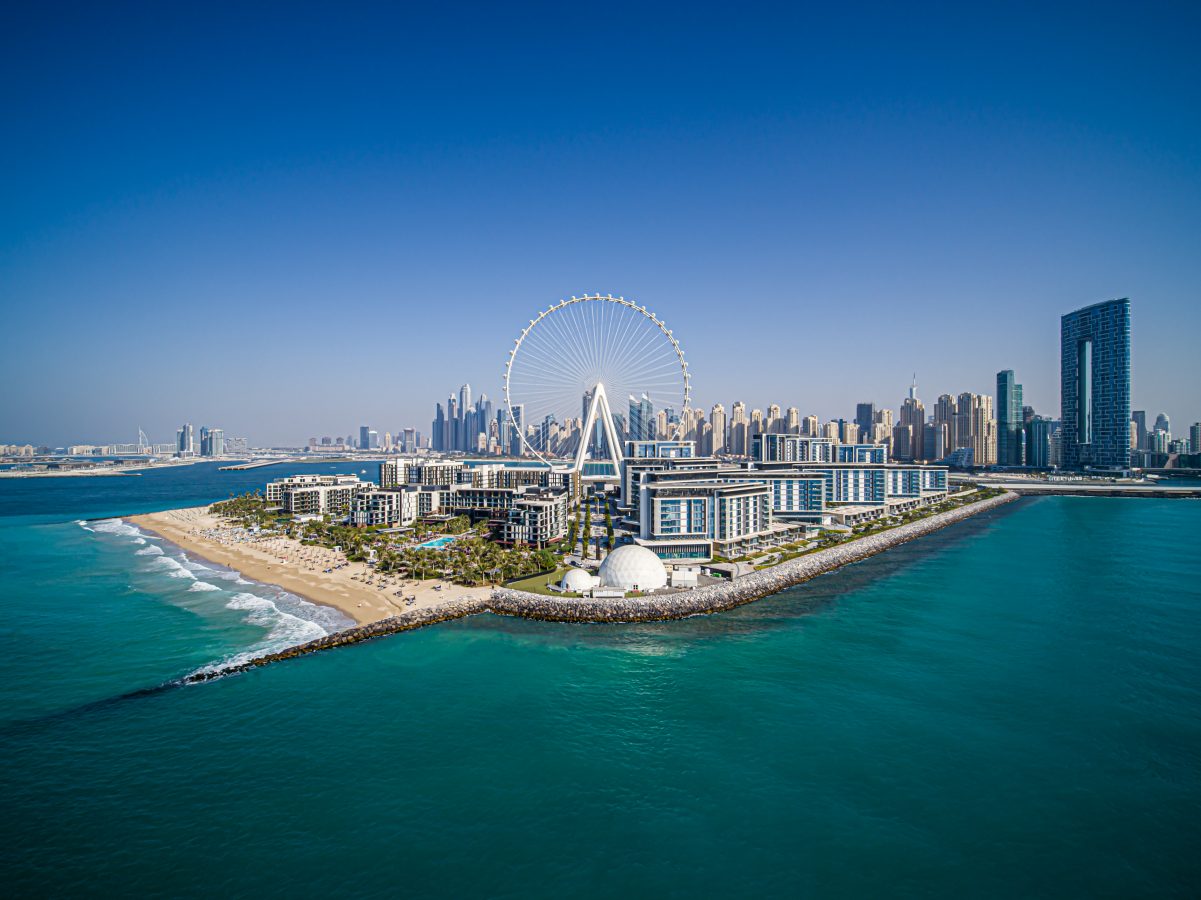
Dubai is located in the United Arab Emirates, a country in the Middle East along the Persian Gulf. It borders Oman, Saudi Arabia and (by water) Qatar.
Flying to Dubai is actually quite easy, because there are a number of US cities where you can fly direct to Dubai. Though the flight time from the US is about 12-15 hours, you’ll find nonstop flights daily from major cities like New York, San Francisco, Washington, Chicago and Los Angeles. There’s a lot of airline options too, although the most popular include Emirates, Delta, Turkish Airlines, Qatar Airways and more.
2. Can Americans visit Dubai right now? What are the Covid-19 travel restrictions for Dubai?
Yes, US citizens can visit Dubai right now! Dubai has contained their Covid-19 spread relatively well and have (at the time of writing) vaccinated about 40% of their population.
Currently, all travelers visiting Dubai need to have proof of a negative Covid-19 PCR test taken within 72 hours prior to departure. Rapid tests or antibody tests are not accepted. You’ll also need to bring printed test results, not a digital copy. Travelers also need to download Dubai’s Covid-19 contact tracing app for the duration of their trip. Dubai is not requiring travelers to be vaccinated.
Dubai’s hotels have recently been allowed to return to 100% occupancy and many public events, concerts, sporting events and more are operating at almost-full capacity for vaccinated locals and travelers. Most things are open, however, masks and distancing are still required in public spaces.
3. Is Dubai safe?
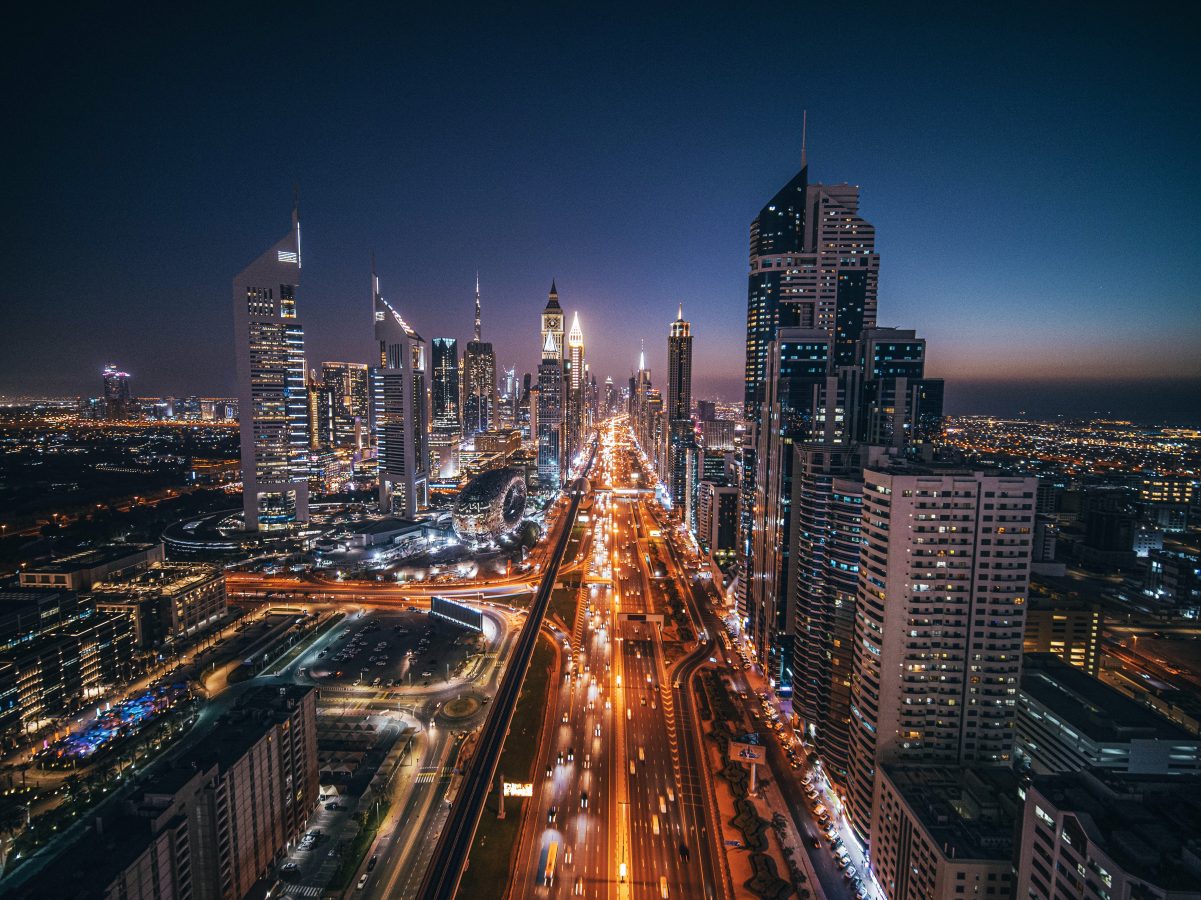
Dubai is an extremely safe city—probably even safer than your city back home. It’s even been ranked one of the safest cities in the world. Dubai has strict laws that mean crime—especially violent crime—is very rare. Some petty crimes (like pickpocketing) may still occur, so keep an eye on your belongings and surroundings, as with anywhere. But visiting Dubai is still extremely safe for Americans and solo travelers.
Ironically, the laws are the things that can most easily get you into trouble in Dubai, as many Americans aren’t accustomed to such strict laws. Know in advance what the rules are (keep reading for some basic dos and don’ts) and be sure to be mindful of them while traveling.
4. Can you drink alcohol in Dubai?
Yes! A common misconception about Dubai is that alcohol is off-limits, but travelers can drink alcohol while visiting Dubai while in licensed areas (like hotels, bars and restaurants with liquor licenses). Drinking in public places or buying alcohol to drink at home without a liquor license is prohibited. Drinking during Ramadan is also a no-go. It’s also a punishable offence to be under the influence in public, so if you do have a fun night out at a bar or club, make sure you keep it together while taking a taxi home.
5. What language is spoken in Dubai?
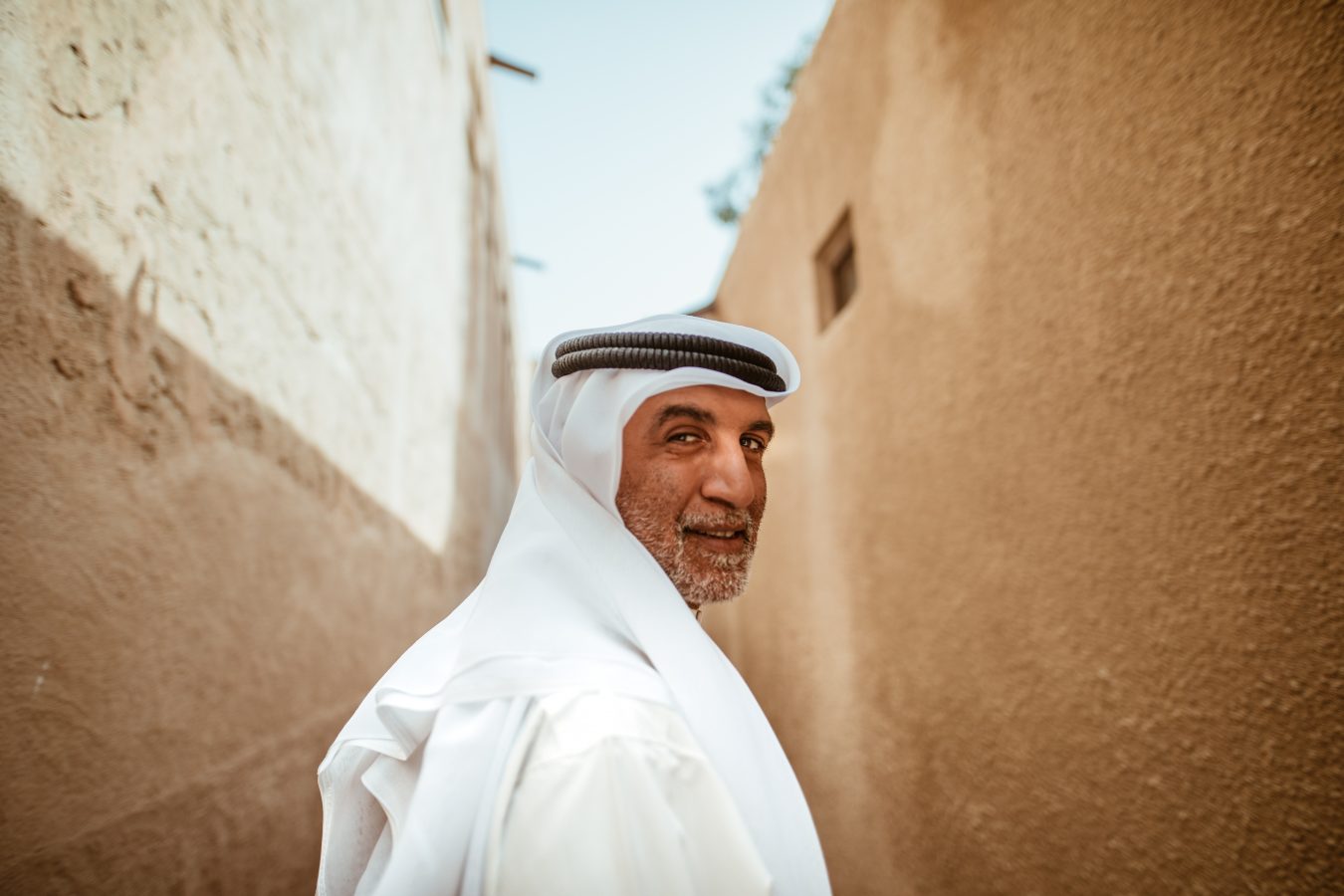
The official language of Dubai is Arabic. However, about 85% of Dubai’s population are expats, which means you’ll hear a variety of languages from all over being spoken. As a result, English is the most commonly spoken language in Dubai, so you’ll have no problem getting around and interacting with most locals.
6. Is Dubai expensive? What’s the currency in Dubai?
It’s an ultramodern city known for luxury and indulgence, which means there’s a lot to spend money on if you’re looking for a glamorous vacation. However, there’s also a lot of ways to visit Dubai on a budget, including:
- Taking the metro or other public transportation instead of renting a car or relying on taxis to get around.
- Avoid alcohol. Alcoholic drinks are pretty expensive in Dubai, so cutting these out can save you a TON on food expenses.
- Stay in a budget hotel or an Airbnb. Dubai is famous for its super luxurious hotels like the Burj Al Arab, but there’s plenty of budget hotel options as well. Airbnb is also an option and can be a great way to save.
- Eat at small, local restaurants (with local foods) instead of fancy restaurants or ordering exotic or American foods. As is the case just about anywhere, small restaurants and cafes with local food options will be the cheapest.
- Explore some of Dubai’s free things to do and discover the history and culture of various neighborhoods and districts of Dubai rather than paying for all the tourist attractions. The Dubai Mall is free to visit and you can easily spend a day there window shopping. The local souqs are a great shopping experience too, and there you can negotiate prices to strike a bargain. Enjoy the beaches or take a free walking tour of the city. Ride a traditional Abra across the Dubai Creek for just $0.30 USD, or explore the historic Old Quarter and Dubai’s historic Al Bastakiya district.
The currency in Dubai is the Emirati dirham (AED). The current exchange rate is about $1 USD = 3.70 AED.
7. When is the best time of year to visit Dubai?
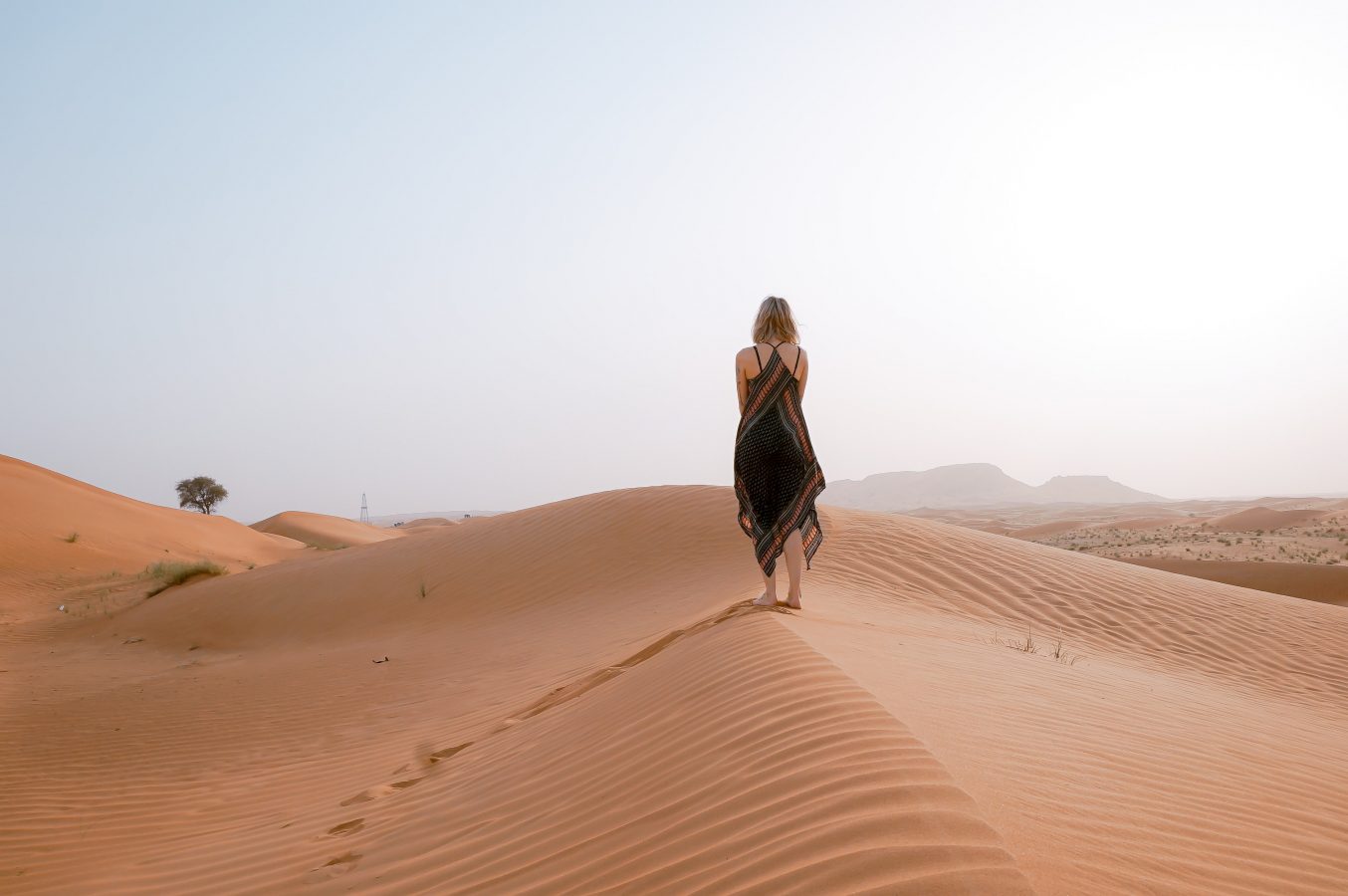
Dubai is known for being a hot desert destination, so it’s no surprise that when you visit it’ll basically be either hot or even hotter. Visiting Dubai in the winter is your best bet. Winter in Dubai starts from around November until April and temperatures tend to be a lot cooler during these months, making it easier to explore all that Dubai has to offer. If you do visit between April and October brace yourselves for some pretty warm weather. Highs can be above 100°F for months, so outdoor exploring can be a hot and sweaty endeavor!
8. Do you need a visa for visiting Dubai?
US passport-holders do not need a visa to visit Dubai if you are staying for 30 days or less. All travelers from the US need to have a round-trip ticket and a passport with at least six months of validity to enter Dubai. A short-term (30 days or less) tourist fee is available for free upon arrival. If you are planning to stay a month or longer, you’ll need to secure a visa in advance.
9. What are some tips for first-time travelers to Dubai? What are some dos and don’ts for Dubai?
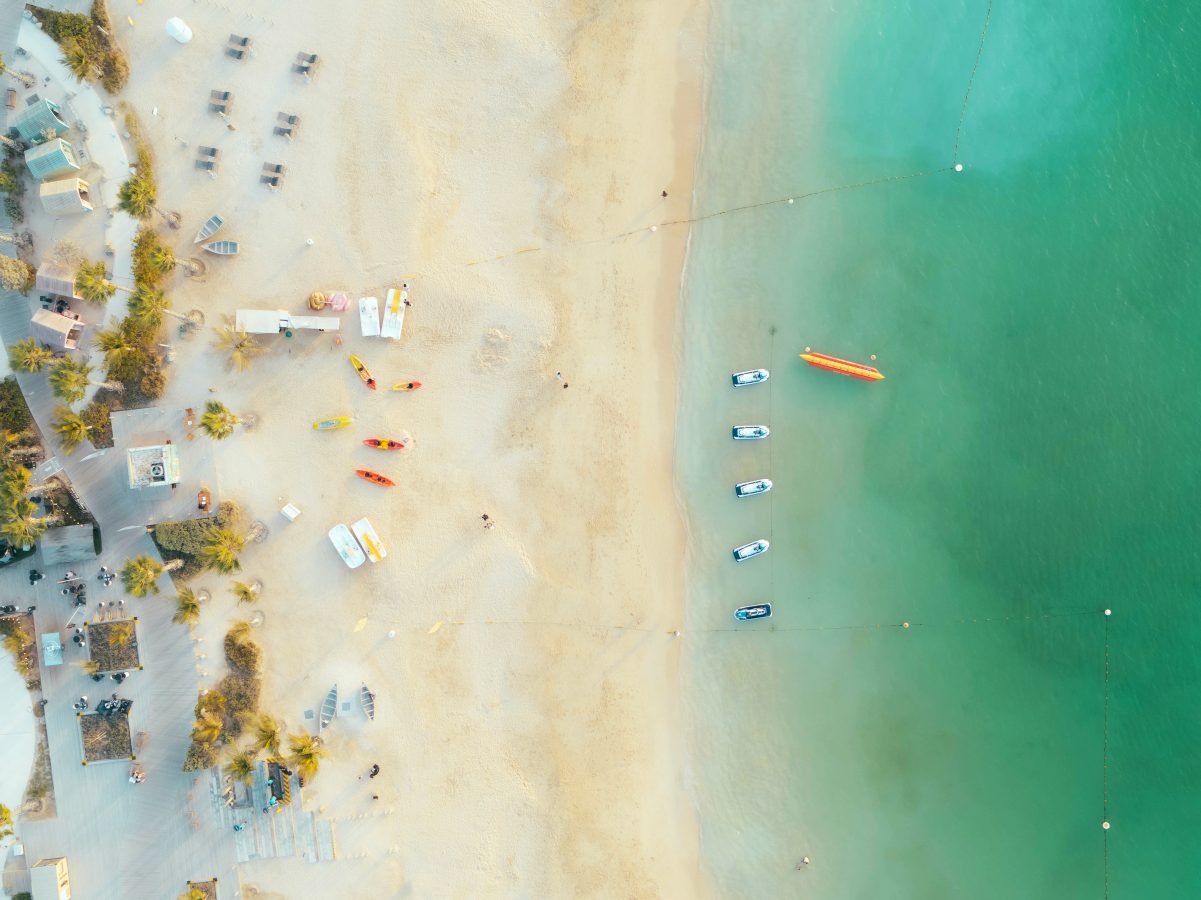
Dubai is a predominantly Muslim country, and some of the customs and culture differs quite a bit from what you might be used to. Here’s some do’s and don’ts you should keep in mind during your trip:
Do:
Do dress modestly if you’re visiting a mosque or other holy or religious places. That means shoulders and knees covered—doing so is respectful of both local culture and religions.
Do be respectful of the local culture and customs. Locals in Dubai tend to be very welcoming, hospitable and peaceful, and showing that you appreciate and respect their culture will go a long way. In addition (this should go for any destination, but especially important in Dubai), don’t make any rude hand gestures, don’t point at people, don’t use swear words or get into an aggressive argument or shouting match in public. All of these things are considered very offensive and can land you a fine or even jail time.
Do be prepared if you need to bring prescription medications with you. Drugs are strictly forbidden in Dubai, even some prescription medications, and using or carrying them with you can face severe penalties or even imprisonment. Check the list of banned substances from the embassy before traveling. For those who do need prescription medications during their trip to Dubai, carry a doctor’s note with you detailing your medical condition, the dosage and usage of your prescription and the dates of your trip.
Do ask before you take photos. Taking photos of people without their permission is severely frowned upon. You can actually get in a bit of trouble for this! (Of course, asking someone’s permission before you take pictures of them should be common practice.) In addition, taking pictures of government sites/restricted areas and military sites is not allowed.
Don’t:
Don’t show any PDA. Dubai is pretty conservative when it comes to PDA, so keep your hands to yourself while you’re out and about. Holding hands is okay for (heterosexual) married couples, but anything more than that is off-limits.
Don’t drink and drive. We shouldn’t have to say this at all, but Dubai has a zero tolerance stance toward driving under the influence. If you’re caught driving in Dubai with any trace of alcohol in your system, you will be imprisoned and/or deported.
Don’t be afraid to wear a bikini at the pool. While you should dress conservatively in places like malls or mosques, at the beach, swimsuits, shorts and so on are totally fine (but keep in mind that beachwear is generally only for the beach). If you’re going out to eat or enjoying a night on the town, dress to impress. As a guest in someone else’s country, it never hurts to err on the side of caution and dress a bit more conservatively, but you will find that most Western attire is generally accepted.
10. What is there to do in Dubai?
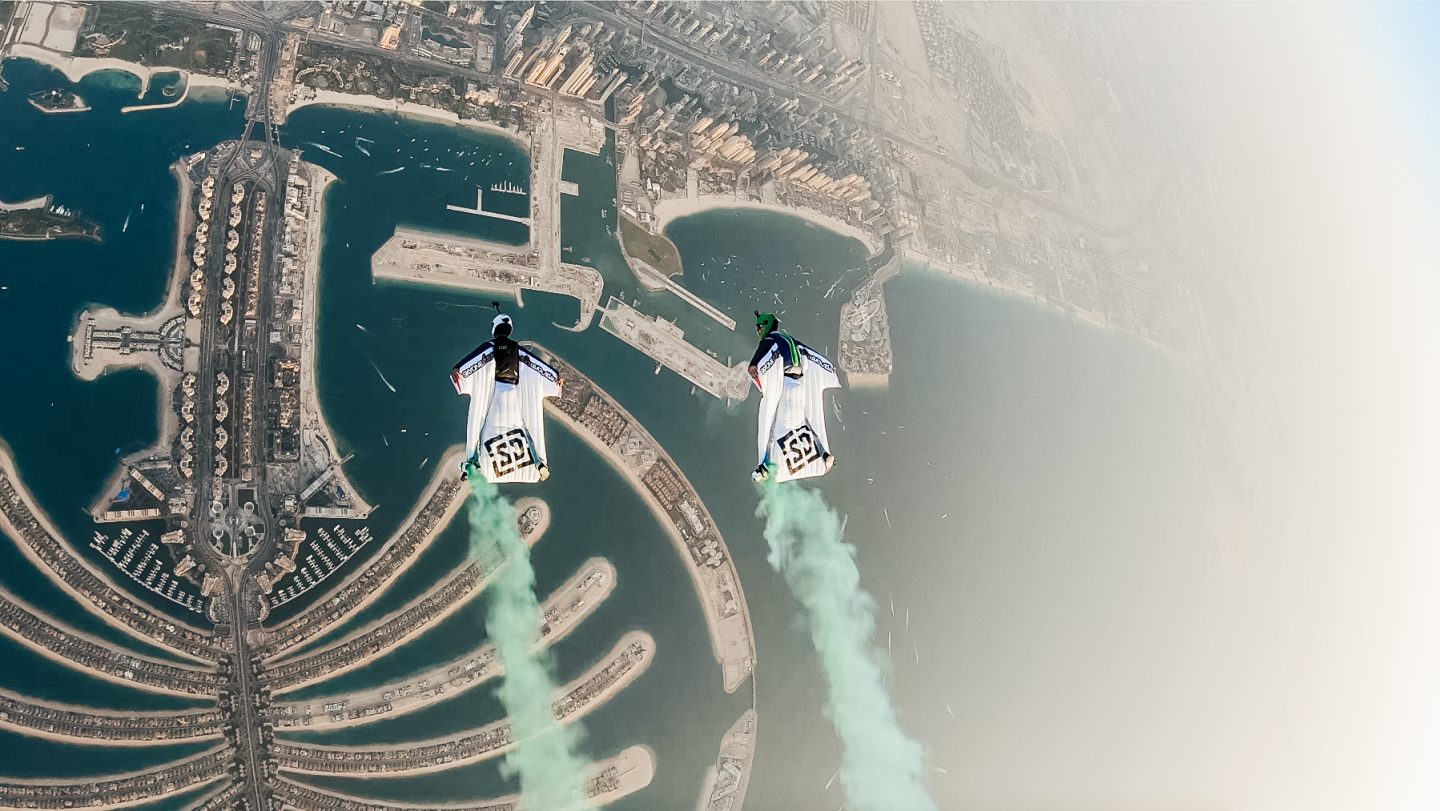
Dubai has plenty to do, no matter what kind of traveler you are! Shopaholics will love exploring the massive Dubai Mall and numerous souks around the city to shop for everything from luxury goods to traditional crafts and spices. Adventure-lovers will find plenty of adventure in Dubai, both inside and outside of the city. Go ziplining over Dubai marina, go dune driving or experience an overnight safari in Dubai’s nearby desert or try scuba diving. Go sightseeing to explore some of Dubai’s most stunning architecture, from the Burj Al Arab to the Burj Khalifa and more.
If you’re interested in learning more about Dubai’s history, culture and religion while visiting Dubai, visit a mosque, explore the historic Bastakiya quarter, or visit the Sheikh Mohammed Centre for Cultural Understanding. Getting hot with Dubai’s desert climate? Visit a local beach, an adventure waterpark, or cool off with indoor skiing at the Dubai Mall.
11. Do you need a car in Dubai?
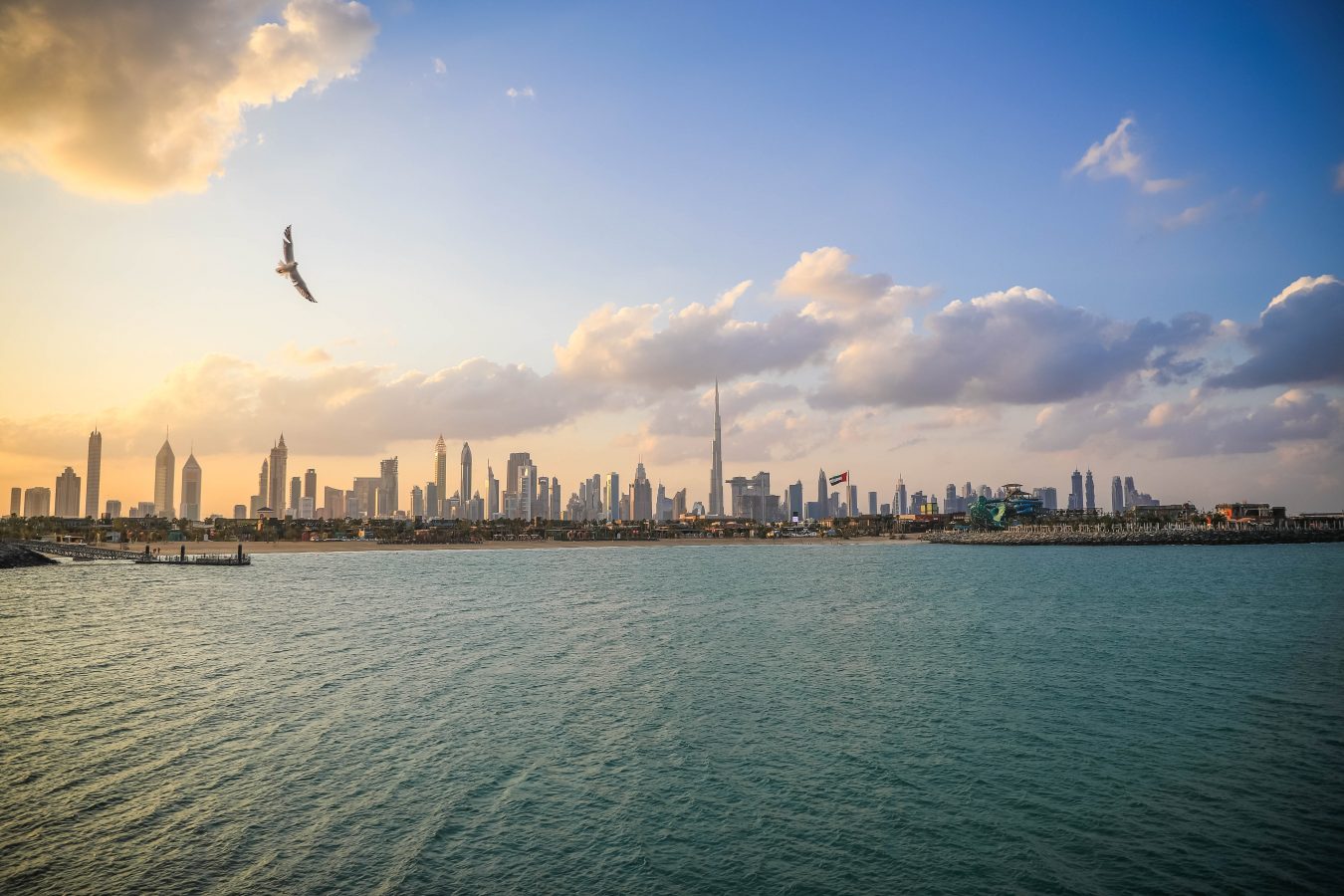
Not really. If you’re staying in the city and want to mostly explore Dubai itself, you can easily get around on public transportation and a few taxi rides here and there. The Dubai metro system is clean, cheap and efficient, and a great way to get around. It has about 50 stations (including the airport) and can take you to a majority of the major attractions and areas of Dubai. You can also book day trip tours to do things like desert safaris, hot air ballooning or dune driving in the desert.
However, if you want the freedom to explore more things outside of the city, or want to take a lot of day trips to nearby areas, a car may be a better option for you. If you’re at least 21, you can rent a car in Dubai. The city is very modern and the roads are generally quite safe—but you’ll need to be a confident driver, as some of the road rules and customs may vary from those in the US. Do keep in mind that rules like speed limits and not using your phone while driving are also more strictly enforced in Dubai than they might be back at home. You’ll need to follow these rules carefully while visiting Dubai!
12. Is it worth it to travel to Dubai?
In our opinion: absolutely, yes! Dubai is underrated among US travelers. However, worldwide, it’s one of the most popular destinations to travel to (which means that American students are missing out!). Visiting Dubai combines Western comforts with exotic Eastern charm that create a unique blend of culture, history, luxury and tradition and will give you an experience you can’t have anywhere else. It’s a city that’s hugely diverse (in terms of nature, people and culture) and home to delicious food, ancient culture, ultramodern skyscrapers and technology and endless things to see and do.
13. What kind of food should you try in Dubai?
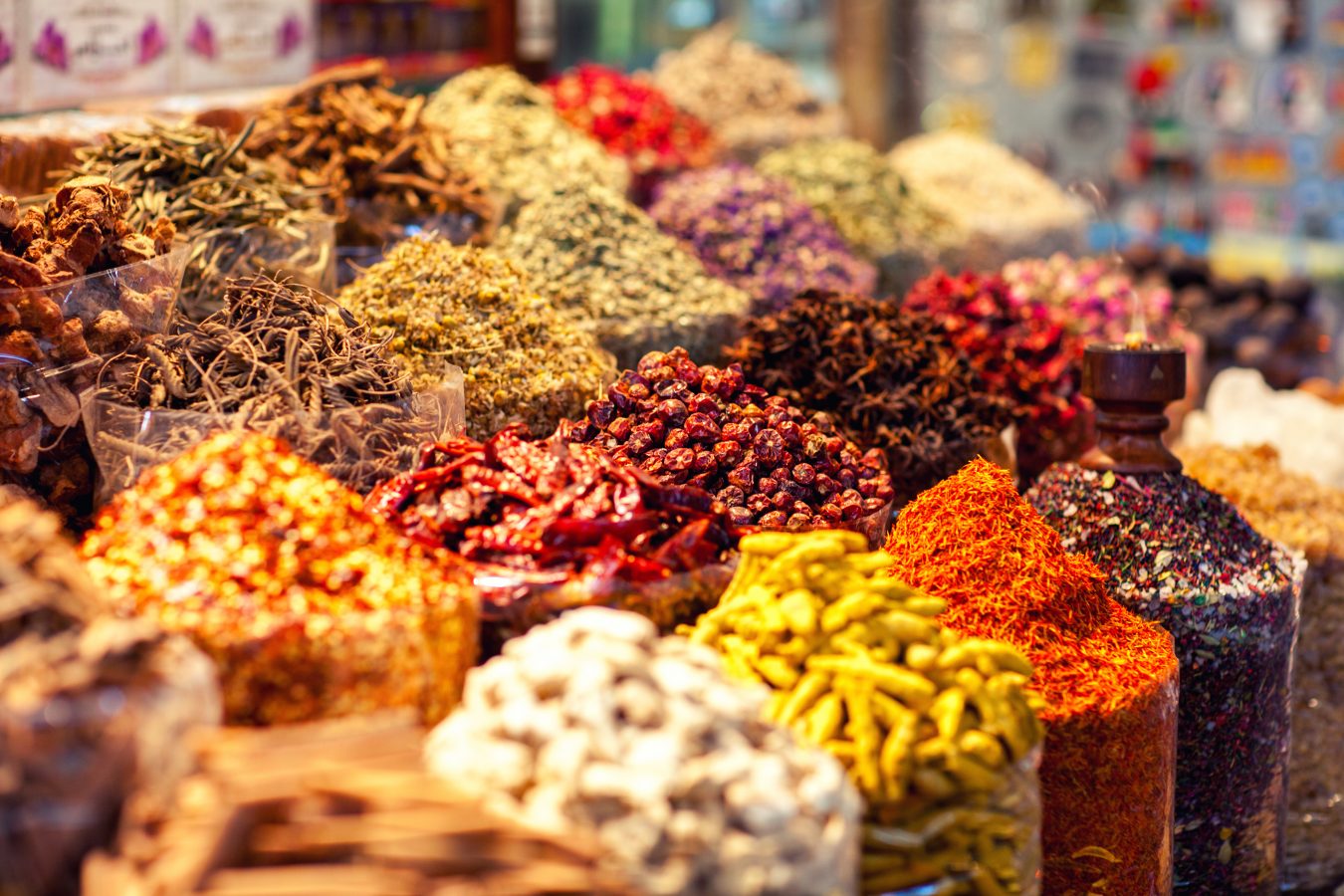
Dubai is a hugely international city with lots of food options, but you’ll definitely want to try some local Emirati options while you’re visiting Dubai! Start the day with some luqaimat, similar to donuts and found at most cafes and bakeries. Later, you can fill up on samboosa, pastry pockets stuffed with cheese, veggies or meat; khubz, a local bread usually served with hummus; or ghuzi (sometimes called khuzi), essentially lamb on kebab skewers with vegetables and nuts served with rice.
Feeling adventurous? Try a camel burger or even some camel milk ice cream! Of course, don’t miss out on the classic Arabic coffee, too.
Ready to book your flights to Dubai? Get $35† off your flights and snatch up a quick deal for a fall or winter getaway now!
